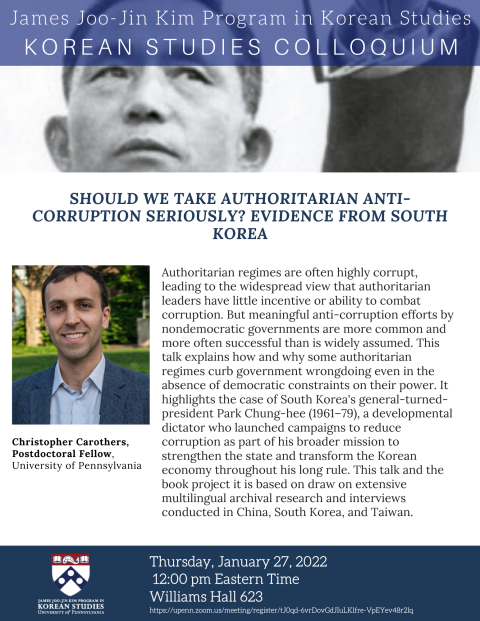
Korean Studies Colloquium
Thursday, January 27, 2022 - 12:00pm
Williams Hall 623
Optional Zoom registration HERE
Authoritarian regimes are often highly corrupt, leading to the widespread view that authoritarian leaders have little incentive or ability to combat corruption. But meaningful anti-corruption efforts by nondemocratic governments are more common and more often successful than is widely assumed. This talk explains how and why some authoritarian regimes curb government wrongdoing even in the absence of democratic constraints on their power. It highlights the case of South Korea's general-turned-president Park Chung-hee (1961–79), a developmental dictator who launched campaigns to reduce corruption as part of his broader mission to strengthen the state and transform the Korean economy throughout his long rule. This talk and the book project it is based on draw on extensive multilingual archival research and interviews conducted in China, South Korea, and Taiwan.
Dr. Christopher Carothers is a political scientist and a Postdoctoral Fellow at the University of Pennsylvania’s Center for the Study of Contemporary China. His research focuses on issues of authoritarianism and corruption in East Asia. His work has been published or is forthcoming in Perspectives on Politics, the Journal of East Asian Studies, the Journal of Contemporary China, Politics and Society, Foreign Affairs, Foreign Policy, and other influential publications.
 James Joo-Jin Kim Center for Korean Studies
James Joo-Jin Kim Center for Korean Studies